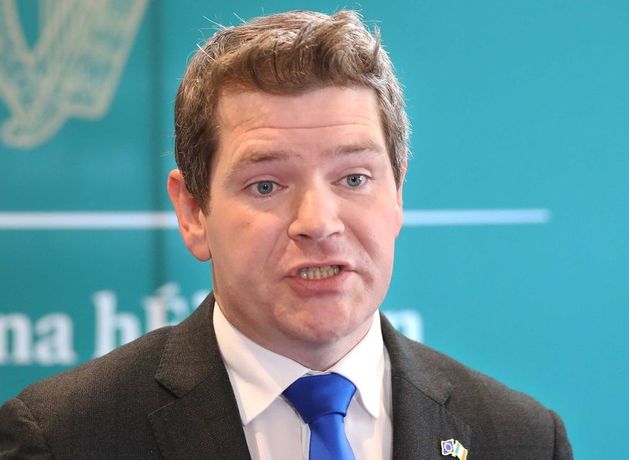Correspondence released under the Freedom of Information Act to the Sunday Independent show that companies called on the Government to address supply chain issues and ensure there was a diverse and skilled workforce here. They also criticised the impact of EU regulations on how they do business.
The warnings from Eli Lilly and Johnson & Johnson came before Mr Trump heightened uncertainty in the sector by announcing sweeping global trade tariffs, and underlined the need for Ireland to react if it is to retain its significant foreign direct investment from the pharma sector.
Multinational pharmaceutical companies play a significant role in Ireland’s economy. IDA Ireland data shows more than 90 pharmaceutical companies are based here and provide in the region of 45,000 jobs. They also pay billions in corporation tax.
US-headquartered Eli Lilly, which employs 3,500 people in Limerick, Cork and on a nationwide commercial team, met with Department of Enterprise officials in February and outlined their concerns around the future of the EU-US trading relationship.
Meanwhile, Johnson & Johnson told Enterprise Minister Peter Burke that policy enhancements for business, health and housing “should be considered in a co-ordinated manner that reflects national strategic priorities”.
Trump has threatened future tariffs of between 150pc and 250p on pharma
Notes from the Eli Lilly meeting show it told Department of Enterprise and IDA Ireland officials that it wants to see “greater intensity from Ireland at EU level, specifically around the EU pharmaceutical legislation.”
New EU pharma rules, which may be adopted by the end of this year, are designed to address issues around the availability of medicines, how they are produced, and aim to improve competitiveness in the sector.
But some businesses raised concerns about the protections for clinical data before it is made available to the manufacturers of cheaper generic versions of drugs.
Existing rules allow pharma companies to keep clinical data for eight years. Reforms would reduce this period to six years, although extensions may apply in some scenarios.
Officials here said they recognised the need to strike a balance between access to affordable medicines and incentivising innovation. Notes from the Eli Lilly meeting show officials in the Department of Enterprise acknowledged EU-US trade concerns in the pharma sector, saying “predictability is key for business” and that European engagement would be “bolstered by expertise from industry”.
The company “also highlighted the importance of de-risking supply chains, ensuring there is a diverse skillset in Irish operations” and said that it “would like to see more regulation co-operation between the US and EU, especially with the US Food and Drug Administration,” meeting notes stated.
A letter sent to Mr Burke by Michaela Hagenhofer, Johnson & Johnson’s general manager of commercial operations in Ireland, raised concerns about the European Commission proposing “to weaken intellectual property incentives for pharmaceuticals… from eight years to six”.
The letter stated: “At European level, it is important that Ireland secures and strengthens its reputation as a life sciences hub by advocating for a competitive business environment. In recent decades, Europe’s share of pharmaceutical investment has significantly declined.”
A Department of Enterprise spokesman said it supports protecting intellectual property “and will continue to make the case for this at EU level”.
The EU and US last month agreed a 15pc tariff rate would apply on most European goods imported to America.
Pharmaceutical goods are not currently the subject of this tariff, but the US is examining its drug supply chains, and levies could be imposed once that analysis concludes.
European Commission president Ursula von der Leyen has said any future pharma tariffs would be capped at 15pc.
Trump indicated this cap may only be maintained for “one year, one-and-a-half years maximum” and threatened future rates of between 150pc and 250pc unless pharma companies return production to the US.
“The department welcomes an agreement that will provide much needed certainty to businesses which operate in Ireland and will continue to engage with the Department of Foreign Affairs and the European Commission,” a Department of Enterprise spokesman said.
“The Department has favoured a zero-for-zero arrangement and will continue to argue against any tariffs which may interfere with the closely integrated nature of the Irish and US pharmaceutical sectors.”
